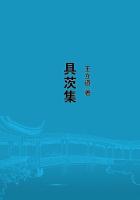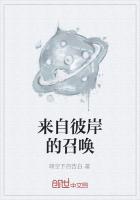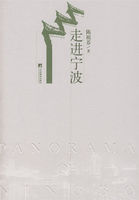These are the great literary powers of the century. With inferior successes, and through various combinations, the elements which contributed to the formation of the leading talents also form the secondary talents, like those below Rousseau, - Bernardin de St.
Pierre, Raynal, Thomas, Marmontel, Mably, Florian, Dupaty, Mercier, Madame de Sta?l; and below Voltaire, - the lively and piquant intellects of Duclos, Piron, Galiani, President Des Brosses, Rivarol, Champfort, and to speak with precision, all other talents. Whenever a vein of talent, however meager, peers forth above the ground it is for the propagation and carrying forward of the new doctrine; scarcely can we find two or three little streams that run in a contrary direction, like the journal of Freron, a comedy by Palissot, or a satire by Gilbert. Philosophy winds through and overflows all channels public and private, through manuals of impiety, like the "Théologies portatives," and in the lascivious novels circulated secretly, through epigrams and songs, through daily novelties, through the amusements of fairs,[42] and the harangues of the Academy, through tragedy and the opera, from the beginning to the end of the century, from the "OEdipe"of Voltaire, to the "Tarare" of Beaumarchais. It seems as if there was nothing else in the world. At least it is found everywhere and it floods all literary efforts; nobody cares whether it deforms them, content in making them serve as a conduit. In 1763, in the tragedy of Manco-Capac[43] the "principal part," writes a contemporary, "is that of a savage who utters in verse all that we have read, scattered through ' Emile' and the 'Contrat Social,' concerning kings, liberty, the rights of man and the inequality of conditions." This virtuous savage saves a king's son over whom a high-priest raises a poniard, and then, designating the high-priest and himself by turns, he cries,"Behold the civilized man; here is the savage man!"At this line the applause breaks forth, and the success of the piece is such that it is demanded at Versailles and played before the court.
The same ideas have to be expressed with skill, brilliancy, gaiety, energy and scandal, and this is accomplished in "The Marriage of Figaro." Never were the ideals of the age displayed under a more transparent disguise, nor in an attire that rendered them more attractive. Its title is the " Folle journee," and indeed it is an evening of folly, an after-supper like those occurring in the fashionable world, a masquerade of Frenchmen in Spanish costumes, with a parade of dresses, changing scenes, couplets, a ballet, a singing and dancing village, a medley of odd characters, gentlemen, servants, duennas, judges, notaries, lawyers, music-masters, gardeners, pastoureaux; in short, a spectacle for the eyes and the ears, for all the senses, the very opposite of the prevailing drama in which three pasteboard characters, seated on classic chairs, exchange didactic arguments in an abstract saloon. And still better, it is an imbroglio displaying a superabundance of action, amidst intrigues that cross, interrupt and renew each other, through a pêle-mêle of travesties, exposures, surprises, mistakes, leaps from windows, quarrels and slaps, and all in sparkling style, each phrase flashing on all sides, where responses seem to be cut out by a lapidary, where the eyes would forget themselves in contemplating the multiplied brilliants of the dialogue if the mind were not carried along by its rapidity and the excitement of the action. But here is another charm, the most welcome of all in a society passionately fond of Parny; according to an expression of the Comte d'Artois, which I dare not quote, this appeals to the senses, the arousing of which constitutes the spiciness and savor of the piece. The fruit that hangs ripening and savory on the branch never falls but always seems on the point of falling; all hands are extended to catch it, its voluptuousness somewhat veiled but so much the more provoking, declaring itself from scene to scene, in the Count's gallantry, in the Countess's agitation, in the simplicity of Fanchette, in the jestings of Figaro, in the liberties of Susanne, and reaching its climax in the precocity of Cherubino. Add to this a continual double sense, the author hidden behind his characters, truth put into the mouth of a clown, malice enveloped in simple utterances, the master duped but saved from being ridiculous by his deportment, the valet rebellious but preserved from acrimony by his gaiety, and you can comprehend how Beaumarchais could have the ancient regime played before its head, put political and social satire on the stage, publicly attach an expression to each wrong so as to become a by-word, and ever making a loud report,[44] gather up into a few traits the entire polemics of the philosophers against the prisons of the State, against the censorship of literature, against the venality of office, against the privileges of birth, against the arbitrary power of ministers, against the incapacity of people in office, and still better, to sum up in one character every public demand, give the leading part to a commoner, bastard, bohemian and valet, who, by dint of dexterity, courage and good-humor, keeps himself up, swims with the tide, and shoots ahead in his little skiff, avoiding contact with larger craft and even supplanting his master, accompanying each pull on the oar with a shower of wit cast broadside at all his rivals.
After all, in France at least, the chief power is intellect.
Literature in the service of philosophy is all-sufficient. The public opposes but a feeble resistance to their complicity, the mistress finding no trouble in convincing those who have already been won over by the servant___________________________________________________________Notes:















